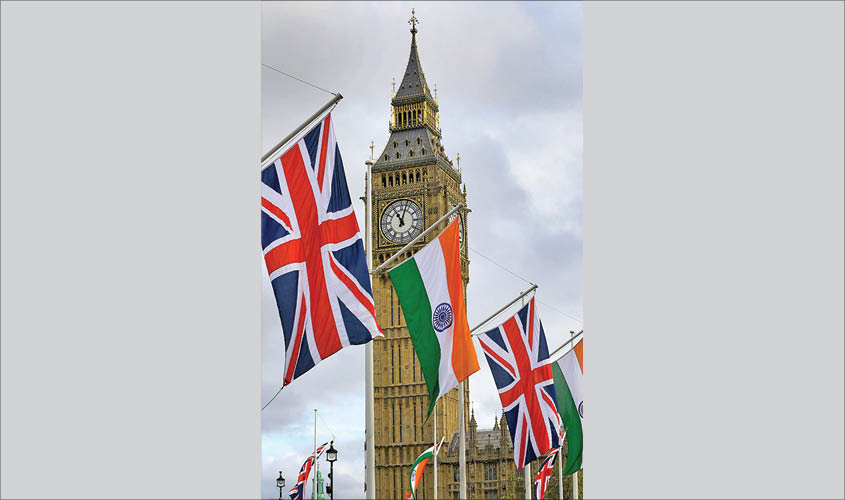UK’s foreign policy priorities have neglected India and the Foreign Secretary, Jeremy Hunt, has not visited India since he took office in July 2018.
London: While Boris Johnson and Jeremy Hunt battle it out for the leadership of the Conservative Party, other people are busy improving UK-India ties.
The House of Commons Foreign Affairs Committee (FAC) released “Building Bridges: Reawakening UK-India Ties”, a rather shocking and overdue indictment on how UK’s relationship with India has deteriorated, with evidence given by distinguished diplomats, ministers, civil servantsand other experts from UK and India. It seems a shared past was taken for granted for a shared future. UK strategy and policy makers were asleep at the wheel as India transformed into a throbbing economy with a nationalist sentiment. The FAC have recognised India’s increasing global significance and UK’s failure to engage with Delhi’s priorities. Although, talk of a UK-India “special relationship” is common, this is at least an exaggeration. UK’s foreign policy priorities have neglected India; UK’s Foreign Secretary Jeremy Hunt has not visited India since his appointment in July 2018. It is as if the UK is only just realising a bilateral relationship is not only about trade. The inquiry discovered UK has sunk to 17th position in India’s trade partnerships. Curiously, UK does not have a dedicated trade envoy to India. Students and tourism from India to UK are similarly diminishing.
At last, an entity in Westminster is acknowledging that the limits on the movement of people are an impediment to good relations. The FAC found that there is an urgency to harmonise Foreign Office and Home Office objectives, reducing net migration is incompatible with opening the necessary doors for Indian entrepreneurs, tech workers, tourists and students so beneficial to the UK. The FAC found that UK’s Global Britain strategy is barely communicated in India and recommends to government several welcome and positive reforms to visas.
UK could possibly recover some favour with India by supporting militarily Indian pre-eminence in the Indian Ocean, connecting with the Quadrilateral Alliance and connecting with Indian initiatives in the South China Sea and the Asia-Africa Growth Corridor, insisting on India’s seat in the United Nations Security Council (UNSC) and India’s inclusion in the Nuclear Suppliers Group (NSG), and being sympathetic to India’s concerns about the Chinese Belt and Road Initiative. Reassuringly, the FAC conclusion is “the UK’s efforts to build ties with China, and engage with Belt and Road, should not be pursued at the expense of its relationship with India.” In the defence and security sphere, UK needs to establish trust with India and support India’s domestic defence industry, “witnesses called on the UK to adopt a less transactional approach to defence cooperation, with a focus on supporting India’s domestic defence industry and sharing high-end military technology”. The Commonwealth is another area recommended for reform to benefit India, “if the Commonwealth is to remain relevant, India needs to be involved in setting its direction.”
Additionally, the FAC found evidence that UK’s attentiveness to Pakistan was interpreted by India as negative, but the report stated UK’s alleged ability to maintain good relations with both New Delhi and Islamabad, and be perceived as a credible interlocutor, is particularly important to the Foreign and Commonwealth Office (FCO).
The findings are concise, humbling and provide valuable insight for the new Prime Minister and government to think from Indian point of view. India now wants relationships on its terms, wants engagement for what is important to its objectives, economic and geopolitical. India requires its stature and status to be accepted, requires a seat at the global governance table and be at least as important to UK as China appears to be. The new PM could take a leaf out of recent US-India ties, and build a long-term partnership, based on trust, recognising and championing India’s objectives, its ancient history and civilisation.

